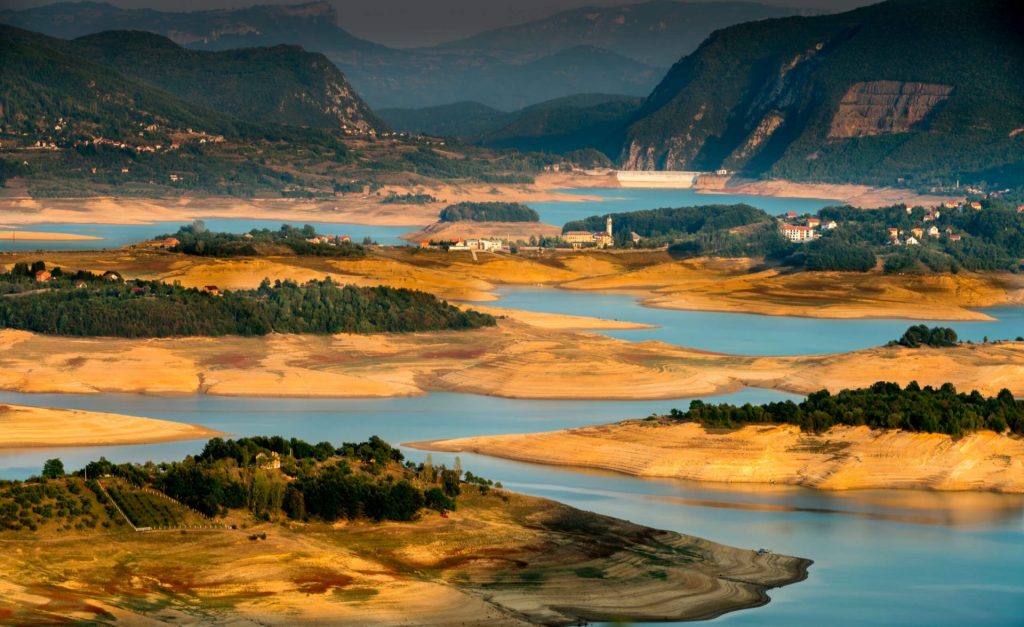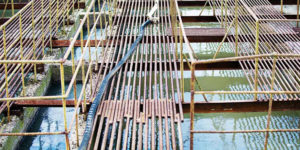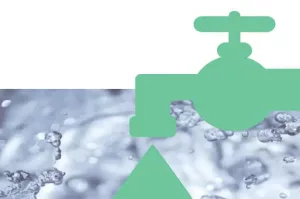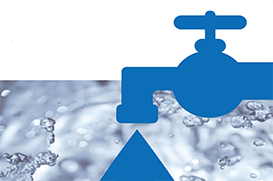heading
PROJECT: GOVERNANCE, ACCOUNTABILITY AND LEARNING FOR WATER SUSTAINABILITY (GOAL-WATERS)Bosnia and Herzegovina
Implementing a new tariff setting methodology for water supply and sewerage services and embedding the standards in the regulatory framework.

Goals
The GoAL WaterS project intends to promote the positive influence of the tariff methodology application (developed within the GoAL WaSH Project) to improve water governance and biodiversity preservation, resulting in decreased water abstraction and reduced pressure on existing water resources in Bosnia and Herzegovina (BiH).
It also underlines the need for wastewater treatment and preservation of river water quality, relating it to the costs of such services and their inclusion in water tariffs.
The full tariff methodology application means a faster increase of wastewater treated since it also aims to unlock the potential investments into the construction of wastewater treatment plants (WWTPs) in the country (planned and needed for the European Union accession roadmap).
Challenge
The key long-term challenge is the lack of financial sustainability of water utilities. Additional investments in water and sanitation are still required, but operational costs cannot be disregarded when planning sanitation infrastructure as they pose a heavy burden on consumers.
At present, operational costs are not considered when designing wastewater collection and treatment schemes. Operation is supported by water resources taxes, and not by tariffs, levied on the basis of willingness to pay. Subsidized services are rarely provided for the most vulnerable segments of the population.
Several WWTPs constructed over the past few years are still not fully functioning or sustainable since the level of operational costs were not properly addressed. This led to international financial institutions (IFIs) stopping further investments, and specifically requesting reforms to allow financial sustainability of all existing and planned WWTPs in BiH.
Strategy
Improving financial and operational sustainability of water utilities
The project aims to support the implementation of tariff setting methodology for water supply and sewerage services in Bosnia and Herzegovina within the local self-governance units participating in the Municipal Environmental and Economic Governance Project (MEG). There will also be final consultations with the pilot water utilities from the GoAL WaSH Project Phase and a presentation of the tariff evaluations.
Raising awareness and capacity development among key stakeholders
A media campaign will focus on the benefits of implementing the tariff methodology, and there will be a conference for the water services provision sector in order to disseminate the results.
Embedding standards of the new tariff methodology in the relevant regulatory framework
The strategy focuses on drafting the Decree on Tariff Methodology, as requested by the Federal Ministry of Agriculture, Water Management and Forestry, and on leading the work group established for this purpose.
Documenting lessons learned and building knowledge management
Documentation will comprise of detailed reports of all activities, including risks and achieved results, and a final integral report on the methodology testing, including the testimonials of all parties involved.
Achievements
The drafting of the Decree for Tariff Methodology, as requested by the Federal Ministry of Agriculture and Water Management and Forestry in Federation of BiH, has proved to be the only relevant step to meeting the demands of the international community and the EU for reforms in the water sector.
In September 2020, the government agreed to the preparation of the Decree for Tariff Setting Methodology for Water Supply and Wastewater. Most documents are in place, so review and adoption can move forward very fast.
This first step towards serious regulation in the sector for water supply and wastewater treatment is important for improved governance and maintenance as well as for investments, especially those in wastewater treatment plants.
Taking every drop into account
This document has been developed within the “Regulatory Framework for Tariff Setting in Water Supply and Sewerage Services in Bosnia and Herzegovina” Project, financed by the Sweden and implemented by the United Nations Development Programme (UNDP) in Bosnia and Herzegovina.
Download the report


